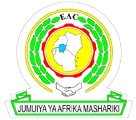Complaint
- Complaint number
- NTB-000-788
- NTB Type
- 2.3. Issues related to the rules of origin
- Complaint
- Ethiopian banks are requiring invoices for sales to Ethiopian customers to be stamped by a Chamber of Commerce in Egypt as validation for letters of credit, which is contrary to COMESA rules. Indeed, as per Rule 10 of the COMESA Protocol on Rules of Origin, the only documentary evidence to demonstrate that a good originates from a COMESA Member State is a certificate of origin (not invoices). Consequently, any company should be able to issue an invoice from any country inside or outside the COMESA region, as long as the origin of the products themselves is correctly documented according to COMESA rules through a certificate of origin. Ethiopian banks should comply with Rule 10 of the COMESA Protocol on Rules of Origin and stop requiring invoices to be stamped by predetermined entities (including, inter alia, by a Chamber of Commerce in Egypt).
- Status note
- On 9 July , Egypt reported that Egypt accepted Ethiopia feedback which is compliant with the COMESA Rules of Origin
- Progress update note
-
On 26 September 2019 , Ethiopia Focal Point reported that :
Article 10(1) of the Protocol on the Rules of Origin for Products to be Traded Between the Member States of COMESA states goods to be accepted as originating from a Member State shall be supported by a certificate given by the exporter or his authorized representative in the form prescribed in Appendix I of this Protocol; and the certificate shall be authenticated by an authority designated for that purpose by each member State. Moreover, the evidences which shall be listed in the form of certificate of origin are prescribed in the Appendix I of this Protocol; and invoice no. is one of those listed evidences.
Accordingly, certificate of origin shall contain evidences including invoice as prescribed in the Appendix I of that Protocol and it should be stamped/authenticated by designated authority of the exporting countries. Therefore, requesting invoices stamped/authenticated by designated authority of the exporting country (Egypt in this case) is not contrary to the COMESA rule.
Notwithstanding of the above, article 10 of the COMESA protocol on rule of origin does not indicate the procedures or requirements for validating letter of credit rather it talks about the certificate of origin of products and the documentary evidence that shall be included in the form of this certificate. Thus, Article 10 of the COMESA protocol on rule of origin does not related with requirements to open letter of credit; and thereby, the banks of importing or exporting countries can request the sale contract of buyer/importer and seller/exporter, and other documents necessary to open letter of credit.
Regarding letter of credit payment system in Ethiopia, it is opened by the request of buyers/importers of Ethiopia when they buy goods from sellers/exporters of exporting countries. The documents that are to be included in the letter of credit are always based on negotiation of importers and exporters; and all documents required by the contract of parties are not necessarily mentioned in the letter of credit. But it is required to present a stamped/verified commercial invoice and to mentioned it in the letter of credit because the importers’ banks use it as an evidence to receive the mentioned price from importer themselves and pay to the exporters’ banks. Therefore, Ethiopian importers who buy goods from Egyptian exporters or other countries’ exporters on letter of credit basis should present to their banks the commercial invoice that stamped/verified by chamber of commerce of those exporting countries. - Policy or regulatory NTB
- No
- Location
- Ethiopia: All Ethiopian banks. (Non-government institution)
- Reporting Country or Region
- Egypt
- Country specific trade issue
- No
- Date of incident
- 2017-06-01
- Status
- Resolved
- Date of resolution
- 2020-07-09
- Product Description
-
- Total value
- 0
- Date reported
- 2017-11-02 10:35
- Modified
- 2020-07-10 09:11
Messages
No messages



 English
English Français
Français
